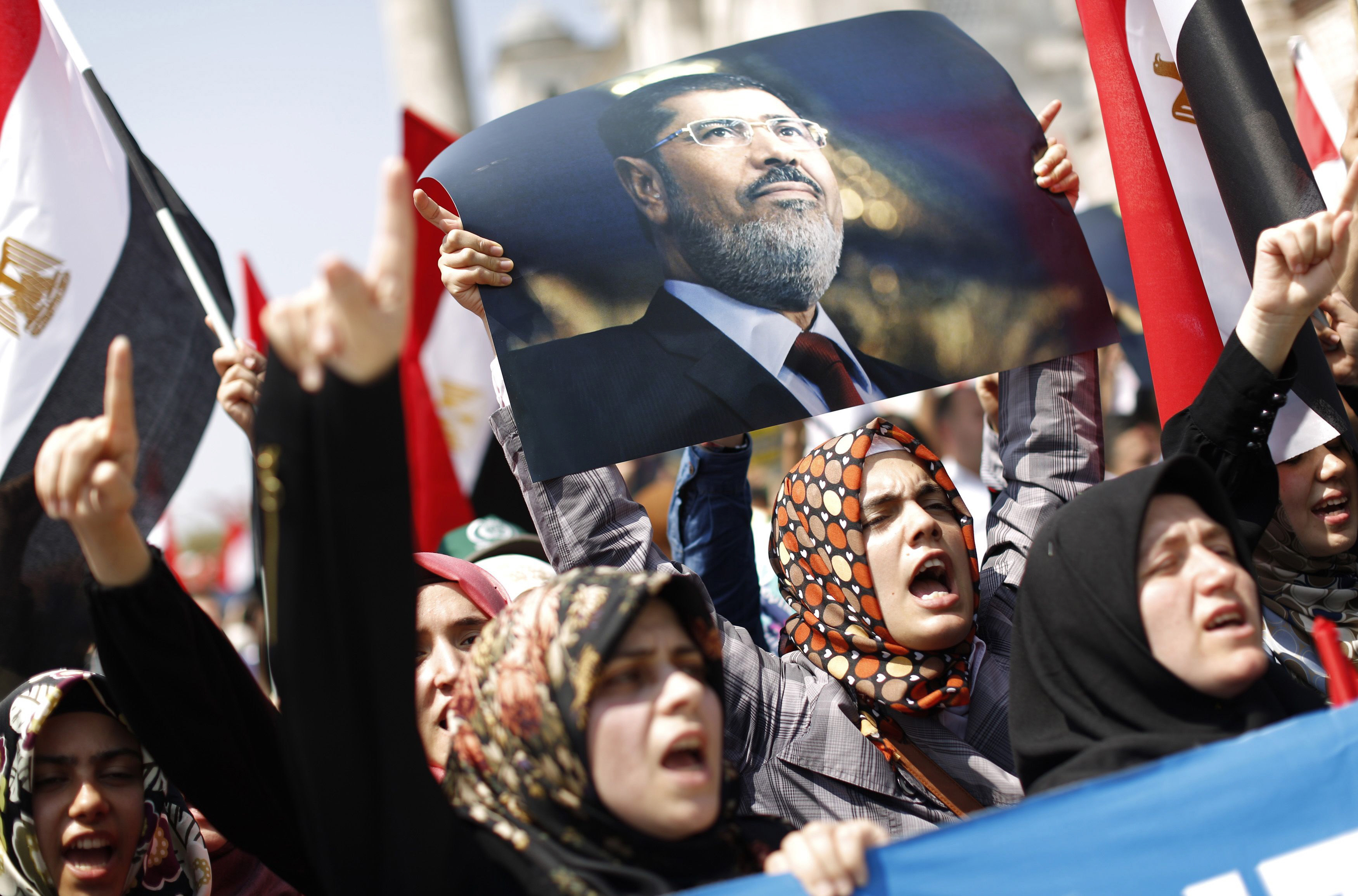
In neighbouring Gaza, the ruling Hamas militants strongly denied the allegations.
Egypt has faced turmoil since the army forced the Brotherhood's Mohamed Mursi from the presidency in July. A week ago, the interior minister survived an assassination attempt in Cairo, amid fears the country could face an insurgency.
The allegations that Hamas has been training Egyptian militants could lead the military-backed authorities to escalate their crackdown on the Brotherhood.
"Security authorities have learned that the military wing of the Hamas movement trained several people to undertake car-bombing operations and trained various others to make explosives," said a presenter on state television.
"The military wing of the Hamas movement provided various Salafi jihadists and also other religious currents with 400 landmines. The security apparatus documented this and they will be arrested."
Fawzi Barhoum, spokesman for the group that controls the Gaza Strip, said of the report, "This is completely incorrect".
It was an "attempt to demonise Hamas", he added.
Hamas is an offshoot of the Muslim Brotherhood, which has been on the defensive since Mursi was ousted from the presidency following mass protests. He had alienated millions of Egyptians by giving himself sweeping powers and mismanaging the economy.
The main state paper, al-Ahram, cited high-ranking security sources as saying Hamas was also involved in the failed assassination attempt against the interior minister earlier this month. It did not elaborate or name the sources.
The army-backed government in Egypt has tightened control of crossings from the Sinai peninsula into Gaza, which Egypt ruled from 1948 to 1967, and continued assaults on militants in Sinai.
Egypt's closure of cross-border smuggling tunnels used to move weapons and goods into the Gaza Strip has dealt a major blow to the Palestinian group.
Hamas has recently tried to lower tension with Egypt, ordering Muslim preachers to mute their criticism of Cairo.
Gaza preachers, in fiery sermons, have accused Egypt's army chief, General Abdel Fattah al-Sisi, of waging war on Islam. Egyptian army officials have accused Hamas of interfering in Egyptian affairs and suggested Palestinians were helping militants in Sinai, which borders Gaza and Israel.
At Gaza street rallies, Hamas fighters have flashed a four-finger salute - a show of support for Mursi.
His ousting was seen as a setback for Hamas, and came as the group's ties with traditional allies Iran and the Lebanese Hezbollah party have also suffered over its siding with rebels battling Syrian President Bashar al-Assad.
Security sources said the former chief of staff under Mursi, Mohamed Rifaa el-Tahtawy, was detained on Thursday on charges of espionage. He had been detained in August over accusations of inciting the detention, torture and interrogation of protesters in 2012, but was released on Tuesday.
State of emergency
The Sinai-based group Ansar Bayt al-Maqdis has claimed responsibility for the suicide bombing aimed at Interior Minister Mohamed Ibrahim. It promised more attacks in revenge for the crackdown on Egypt's militants, raising fears that militant violence in Sinai could spread across the country.
Another group called Jund al-Islam (Soldiers of Islam) put out a statement on a Facebook page claiming responsibility for two attacks on the Egyptian army, including the car bomb that exploded at an intelligence facility in Egypt's Sinai on Wednesday, killing four people.
Aside from unrest in the Sinai, Egypt's government says the Brotherhood itself also poses a security threat, accusing it of carrying out terrorist acts.
Security forces killed hundreds of members during a raid on pro-Mursi protest camps in Cairo on Aug. 14 and then arrested top Brotherhood leaders accused of inciting violence.
There are no signs the pressure on militants will ease.
Egypt extended a state of emergency for two months on Thursday as authorities expressed growing concern over militant violence. It also has an overnight curfew in place.
The government originally announced a one-month state of emergency on August 14 and Thursday's announcement extended the order, which covers the whole country, to mid-November.
The Muslim Brotherhood has accused the government of rehabilitating the older, autocratic order under President Hosni Mubarak for 30 years and catering to military officials.
An Egyptian court on Thursday acquitted all 14 defendants, including policemen, accused of killing 17 protesters during the bloodiest day of a revolt that toppled Mubarak over two years ago, judicial sources said.
The deaths in Suez City triggered violence across Egypt on what was later called "The Friday of Rage" - Jan. 28, 2011 - that fuelled an 18-day uprising against Mubarak, who had ruled Egypt for 30 years.
The case is the latest in a series in which Mubarak-era officials were either acquitted or given light sentences, raising frustrations among opponents of the government and the former Mubarak administration.









1732105641-0/BeFunky-collage-(78)1732105641-0-270x192.webp)







COMMENTS
Comments are moderated and generally will be posted if they are on-topic and not abusive.
For more information, please see our Comments FAQ